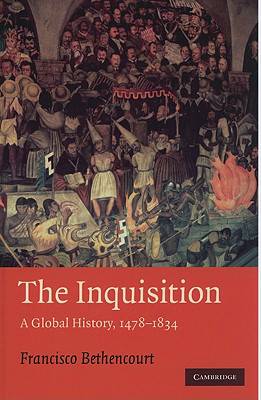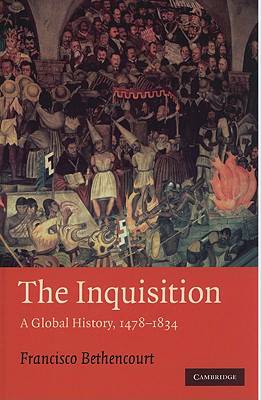
- Afhalen na 1 uur in een winkel met voorraad
- Gratis thuislevering in België vanaf € 30
- Ruim aanbod met 7 miljoen producten
- Afhalen na 1 uur in een winkel met voorraad
- Gratis thuislevering in België vanaf € 30
- Ruim aanbod met 7 miljoen producten
Zoeken
Omschrijving
The Inquisition was the most powerful disciplinary institution in the early modern world, responsible for 300,000 trials and over 1.5 million denunciations. How did it root itself in different social and ethnic environments? Why did it last for three centuries? What cultural, social and political changes led to its abolition? In this first global comparative study, Francisco Bethencourt examines the Inquisition's activities in Spain, Italy, Portugal and overseas Iberian colonies. He demonstrates that the Inquisition played a crucial role in the Catholic Reformation, imposing its own members in papal elections, reshaping ecclesiastical hierarchy, defining orthodoxy, controlling information and knowledge, influencing politics and framing daily life. He challenges both traditionalist and revisionist perceptions of the tribunal. Bethencourt shows the Inquisition as an ever evolving body, eager to enlarge jurisdiction and obtain political support to implement its system of values, but also vulnerable to manipulation by rulers, cardinals, and local social elites.
Specificaties
Betrokkenen
- Auteur(s):
- Vertaler(s):
- Uitgeverij:
Inhoud
- Aantal bladzijden:
- 504
- Taal:
- Engels
- Reeks:
Eigenschappen
- Productcode (EAN):
- 9780521847933
- Verschijningsdatum:
- 16/11/2009
- Uitvoering:
- Hardcover
- Formaat:
- Genaaid
- Afmetingen:
- 152 mm x 229 mm
- Gewicht:
- 907 g

Alleen bij Standaard Boekhandel
+ 273 punten op je klantenkaart van Standaard Boekhandel
Beoordelingen
We publiceren alleen reviews die voldoen aan de voorwaarden voor reviews. Bekijk onze voorwaarden voor reviews.











